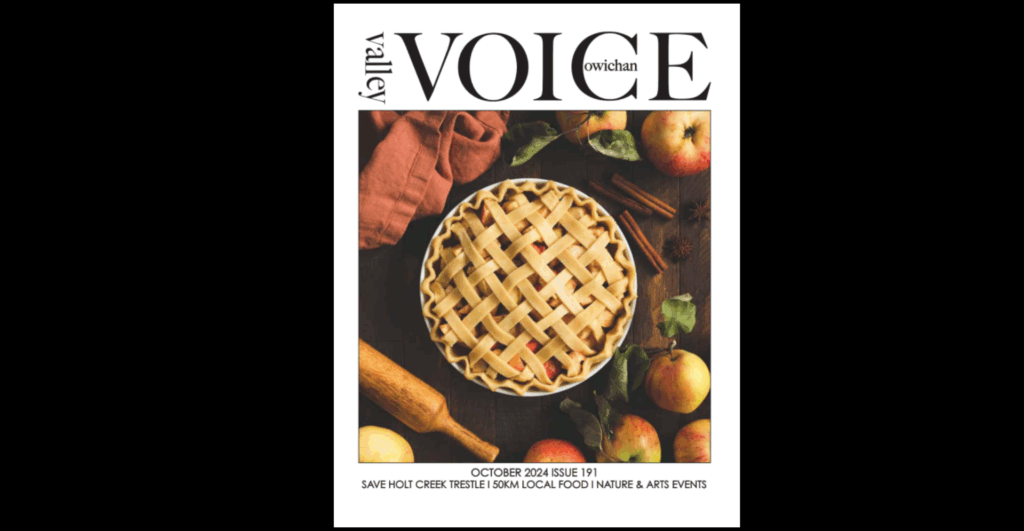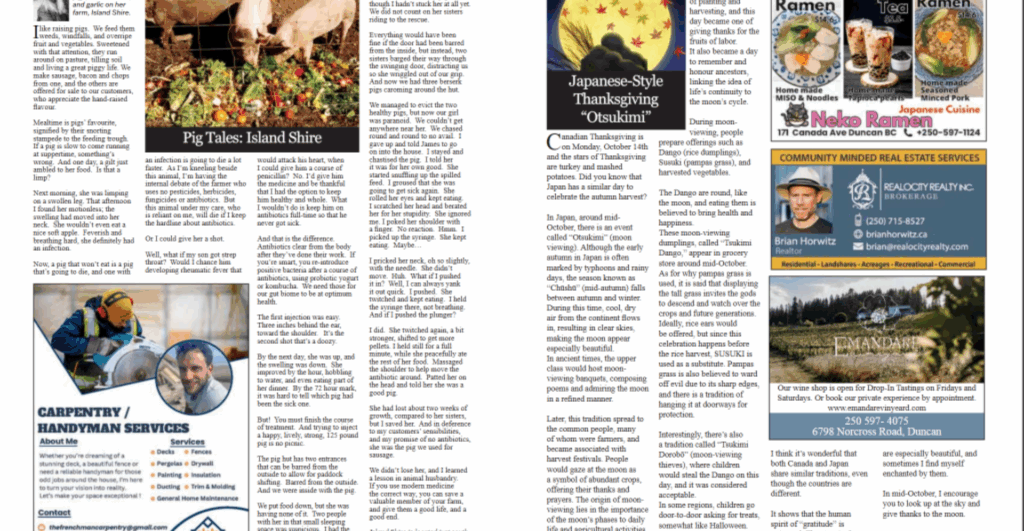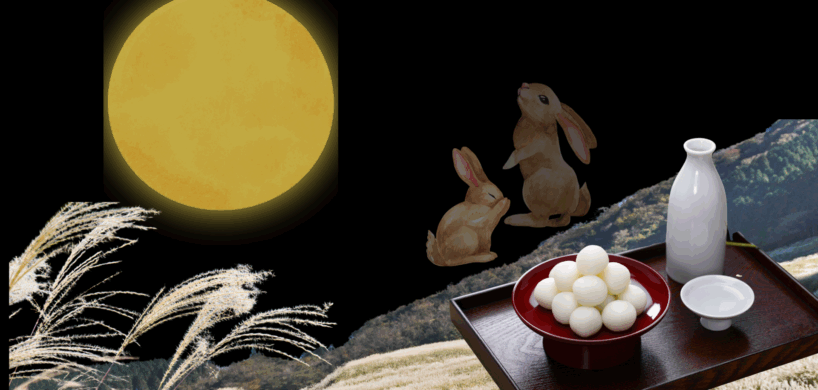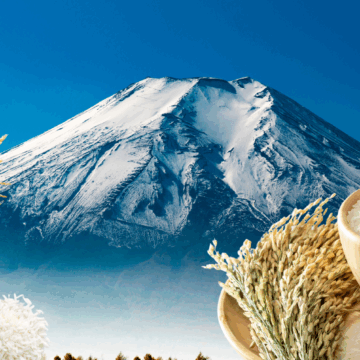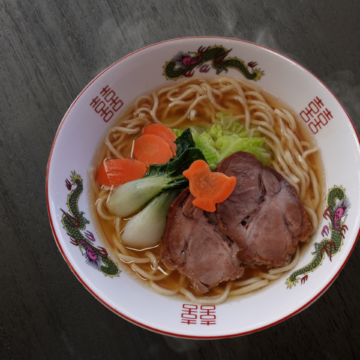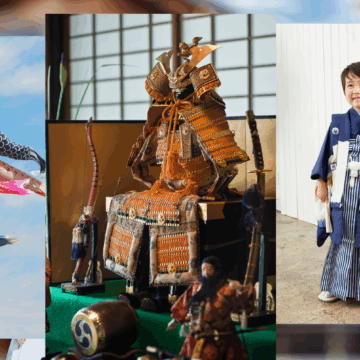Canadian Thanksgiving in 2024 is on Monday, October 14th, right?
The stars of Canadian Thanksgiving are likely “turkey” and “mashed potatoes,” right?
Did you know that Japan has a similar day to celebrate the autumn harvest?
In Japan, around mid-October, there is an event called 〝OTSUKIMI” (moon viewing).
Although the early autumn in Japan is often marked by typhoons and rainy days, the season known a〝Chūshū” (mid-autumn) falls between autumn and winter.
During this time, cool, dry air from the continent flows in, resulting in clear skies, making the moon appear especially beautiful.
In ancient times, the upper class would host moon-viewing banquets, composing poems and admiring the moon in a refined manner.
Later, this tradition spread to the common people, many of whom were farmers, and became associated with harvest festivals.
People would gaze at the moon as a symbol of abundant crops, offering their thanks and prayers.
The origin of moon-viewing lies in the importance of the moon’s phases to daily life and agricultural activities.
The waxing and waning of the moon came to symbolize the cycle of planting and harvesting, and this day became one of giving thanks for the fruits of labor.
It also became a day to remember and honor ancestors, linking the idea of life’s continuity to the moon’s cycle.
During moon-viewing, people prepare offerings such as DANGO (rice dumplings), SUSUKI (pampas grass), and harvested vegetables.
The DANGO are round, like the moon, and eating them is believed to bring health and happiness.
These moon-viewing dumplings, called “Tsukimi Dango,” appear in grocery store around mid-October.
As for why pampas grass is used, it is said that displaying the tall grass invites the gods to descend and watch over the crops and future generations.
Ideally, rice ears would be offered, but since this celebration happens before the rice harvest, SUSUKI is used as a substitute. Pampas grass is also believed to ward off evil due to its sharp edges, and there is a tradition of hanging it at doorways for protection.
Interestingly, there’s also a tradition called 〝Tsukimi Dorobō” (moon-viewing thieves), where children would steal the DANGO on this day, and it was considered acceptable.
In some regions, children go door-to-door asking for treats, somewhat like Halloween.
I think it’s wonderful that both Canada and Japan share similar traditions, even though the countries are different.
It shows that the human spirit of “gratitude” is universal. The stars in the sky over Vancouver Island are especially beautiful, and sometimes I find myself enchanted by them.
In mid-October, I encourage you to look up at the sky and give thanks to the moon.
This article was contributed to the October 2024 issue of Cowichan Valley Voice.
日本流の感謝祭 「お月見」
2024年のカナダの感謝祭は、10月14日(月)ですね。
カナダの感謝祭といえば、「七面鳥」や「マッシュポテト」が主役ですよね?
実は、日本にも秋の収穫を祝う似たような日があることをご存じですか?
日本では、10月中旬ごろに「お月見」と呼ばれる行事があります。
日本の初秋は台風や雨の多い時期でもありますが、「中秋(ちゅうしゅう)」と呼ばれるこの季節は、ちょうど秋から冬への移り変わりの時期にあたります。
この時期は大陸から乾いた涼しい空気が流れ込むため、空気が澄み、月がひときわ美しく見えるのです。
昔は、貴族たちが優雅に詩を詠みながら月を鑑賞する「観月の宴」を開いていました。
その後、この風習は庶民の間にも広がり、多くが農民であったことから、収穫祭と結びつくようになりました。
人々は豊作の象徴として月を見上げ、感謝の気持ちと祈りを捧げたのです。
お月見の起源は、月の満ち欠けが人々の生活や農作業にとって非常に重要であったことに由来します。
月が満ち欠けする姿は、種まきから収穫までの循環の象徴とされ、この日は「労働の実りに感謝する日」として大切にされてきました。
また、先祖を偲び、命のつながりを月の満ち欠けと重ねて祈る日にもなりました。
お月見の日には、団子(だんご)、ススキ(薄)、収穫した野菜などが供えられます。
団子は月のように丸く、これを食べることで健康や幸福をもたらすと信じられています。
この「月見団子」は、10月中旬ごろになるとスーパーなどにも並びます。
ススキが飾られる理由は、神様がその長い草に降り立ち、作物や子孫を見守ってくれると考えられているためです。
本来は稲穂を供えるのが理想とされていますが、お月見の時期は稲刈り前であるため、代わりにススキが使われるようになりました。
また、ススキの鋭い葉には邪気を払う力があるとされ、玄関に吊るす風習もあります。
興味深いことに、「月見泥棒」という風習もあり、この日だけは子どもたちが供えられた団子を盗んでも許されるという文化があるのです。
地域によっては、子どもたちが家々を回ってお菓子をもらう習わしもあり、どこかハロウィーンに似ています。
カナダと日本は遠く離れた国ですが、こうした似たような伝統があるのはとても素敵なことだと思います。
「感謝の気持ち」は、国を越えて共通する人間の本質なのだと感じます。
バンクーバー島の夜空に浮かぶ星々はとても美しく、思わず見とれてしまうことがあります。
ぜひ10月中旬には空を見上げ、月に感謝の気持ちを伝えてみてください。
※この記事は、**2024年10月号の「カウチンバレー・ヴォイス(Cowichan Valley Voice)」**に寄稿されたものです。
